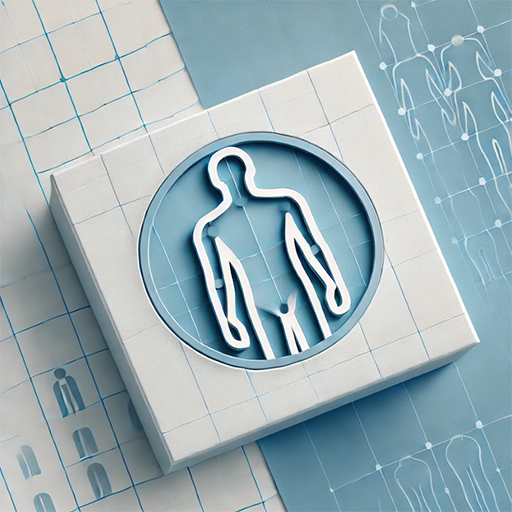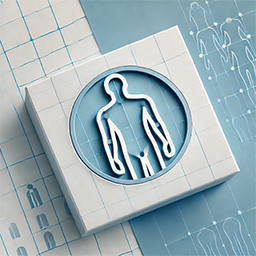Why “Lose Weight, Gain Health” Matters
Losing weight isn’t just about looking good—it’s about feeling your best and staying healthy for the long run. Carrying extra weight can increase your risk for serious health conditions like heart disease, type 2 diabetes, and high blood pressure. By shedding those extra pounds, you can lower these risks and enjoy a better quality of life. You’ll likely notice more energy, improved sleep, and less strain on your joints, making it easier to move through your daily routine.
This guide will show you simple, healthy ways to lose weight without turning to crash diets or intense workout plans. Instead, you’ll learn how to make smart, lasting changes that support your overall health and well-being.
The Health Benefits of Losing Weight
Even small steps toward weight loss can lead to big health benefits. The Centers for Disease Control and Prevention (CDC) says that losing just 5% to 10% of your body weight can make a big difference in your overall health. This small change can:
- Lower your blood pressure
- Improve your cholesterol numbers
- Cut your risk of developing type 2 diabetes
- Reduce joint pain and help you move more easily
- Boost your energy and lift your mood
Making steady progress—even a few pounds at a time—can have a lasting impact on how you feel every day.

Start with Realistic Goals
Set SMART Goals for Weight Loss
One of the most effective ways to stay motivated and on track with your weight loss journey is by setting SMART goals. These are goals that are:
- Specific: Clearly define what you want to achieve, like “lose 10 pounds” or “cut down on sugary snacks.”
- Measurable: Track your progress so you can see improvements, such as weighing yourself once a week or counting steps each day.
- Achievable: Set goals that are realistic and within reach. It’s important not to aim for big changes too quickly.
- Realistic: Choose goals that align with your lifestyle and everyday routine, like taking the stairs instead of the elevator.
- Time-based: Set a timeline to stay focused, such as “lose 5 pounds in the next month” or “walk 30 minutes five days a week.”
For example, starting with a goal like “walk 30 minutes a day, five days a week” is much easier to stick with than an overwhelming goal like “lose 50 pounds by summer.” Small, manageable goals can lead to lasting success.
Eat for Health, Not Just for Weight Loss
Focus on Whole Foods
Choosing the right foods is key to feeling satisfied, boosting your energy, and keeping your body in top shape. Focus on eating:
- Fruits and vegetables: These are packed with fiber, vitamins, and antioxidants that help support your immune system and digestive health.
- Whole grains: Foods like brown rice, quinoa, and oats are full of nutrients and provide lasting energy throughout the day.
- Lean proteins: Opt for lean sources like chicken, fish, tofu, and beans to help build muscle and keep you feeling full longer.
- Healthy fats: Include healthy fats in your diet, such as nuts, seeds, olive oil, and avocado, which support heart health and help absorb essential vitamins.
It’s also important to limit processed foods, added sugars, and sugary drinks as much as possible. These foods provide little nutritional value and can contribute to weight gain and inflammation over time.hese offer little nutrition and can lead to weight gain and inflammation.
Portion Control Made Simple
You don’t have to count every calorie to lose weight. Instead, try these simple, effective tips to help control your portions and stay on track:
- Use smaller plates: This can help you eat smaller portions and prevent overeating.
- Fill half your plate with vegetables: Vegetables are low in calories but high in nutrients, helping you feel full without overindulging.
- Eat slowly and stop when you feel satisfied: Eating at a slower pace gives your body time to signal when you’ve had enough, preventing you from eating too much.
- Drink water before meals: Drinking a glass of water before you eat can help curb your appetite, making it easier to avoid overeating and mistaking thirst for hunger.
By following these simple strategies, you can make healthier choices without stressing over every calorie.
Move Your Body Every Day
Exercise for Weight Loss and Better Health
You don’t need a gym to start getting active. The Centers for Disease Control and Prevention (CDC) recommends at least 150 minutes of moderate-intensity physical activity each week. That’s only 30 minutes a day, five days a week—easy to fit into your routine!
Some great options to stay active include:
- Brisk walking: A simple way to get your heart pumping and enjoy the outdoors.
- Dancing: A fun way to get moving while improving coordination and balance.
- Biking: Whether outdoors or on a stationary bike, cycling is an excellent way to build strength and endurance.
- Swimming: A full-body workout that’s easy on the joints.
- Gardening: An enjoyable way to stay active while also being productive.
Exercise is key for your overall health and offers many benefits, including:
- Burning calories: Helping you maintain or lose weight.
- Improving heart health: Reducing the risk of heart disease and boosting circulation.
- Building muscle: Strengthening muscles and increasing bone density.
- Boosting your mood: Exercise triggers the release of endorphins, which can help reduce stress and anxiety.
- Sleeping better: Regular physical activity can help you sleep more soundly at night.
By incorporating simple activities into your day, you’ll enjoy a variety of health benefits without needing a gym membership.
Strength Training Matters Too
Lifting weights or using your body weight (such as with squats or push-ups) is a great way to improve your overall health. Strength training helps you:
- Build and maintain muscle: Muscle mass naturally decreases as we age, but strength exercises can help preserve and build muscle.
- Burn more calories at rest: The more muscle you have, the more calories your body burns, even when you’re not working out.
- Protect your bones as you age: Strength training strengthens bones, reducing the risk of osteoporosis and fractures as you get older.
To see even better results, aim to add strength exercises to your routine at least two days a week. Whether it’s weightlifting, bodyweight exercises, or resistance bands, these activities can help you feel stronger and healthier overall.

Don’t Overlook Sleep and Stress
Why Sleep Is Key to Weight Loss
Lack of sleep affects your hormones, increases hunger, and lowers your energy. Aim for 7 to 9 hours of quality sleep each night.
To improve your sleep:
- Stick to a regular bedtime
- Turn off screens an hour before bed
- Keep your room dark and cool
- Avoid caffeine late in the day
Manage Stress the Healthy Way
Stress can lead to emotional eating and weight gain. Find healthy ways to cope, such as:
- Deep breathing
- Yoga or stretching
- Walking in nature
- Talking to a friend or therapist
Stress reduction isn’t just good for your mind—it supports your weight loss too.
Keep Track of Your Progress
Tracking helps you see what’s working and stay motivated. You can:
- Keep a food and activity journal
- Use an app like MyFitnessPal or Lose It!
- Take weekly measurements or photos
Remember, the scale is just one tool. Non-scale victories like more energy, looser clothes, and better sleep are just as important.
Stay Motivated with Support
Build a Healthy Environment
Make it easier to reach your goals by changing your surroundings:
- Stock your kitchen with healthy foods
- Keep workout clothes visible
- Plan meals ahead
- Avoid buying tempting junk food
Get Support from Others
You’re more likely to stick with healthy habits if you:
- Join a weight loss group
- Find a workout buddy
- Talk to a doctor, dietitian, or coach
You don’t have to do it alone. Having someone cheer you on makes a big difference.
Common Mistakes to Avoid
- Skipping meals: This can slow your metabolism and lead to overeating later.
- Extreme diets: Fad diets are hard to maintain and may harm your health.
- Obsessing over the scale: Focus on how you feel, not just what you weigh.
- Comparing yourself to others: Everyone’s journey is different.
- Giving up after a setback: Progress is never perfect—just keep going.

Lose Weight, Gain Health: It’s All Connected
Losing weight isn’t just about looking slimmer. It’s about gaining strength, energy, confidence, and better health. When you fuel your body right, move daily, sleep well, and manage stress, you’ll feel the difference.
Start small. Be kind to yourself. And celebrate every win—no matter how tiny it seems.
Your Next Steps to a Healthier You
Here’s how you can get started today:
- Drink water instead of soda or juice
- Take a 10-minute walk after meals
- Add one fruit or vegetable to each meal
- Turn off screens 30 minutes before bed
- Write down one goal for the week
Need Extra Help?
Talk to your healthcare provider before starting any weight loss plan. They can help guide you safely.
What small change are you going to make today to lose weight and gain health? Share your goals in the comments below—we’d love to cheer you on!



